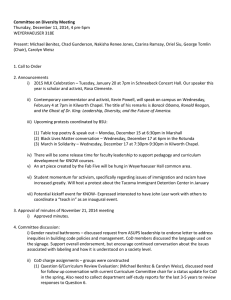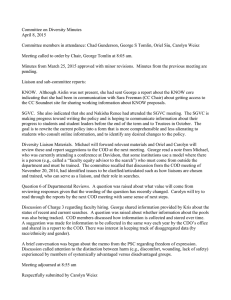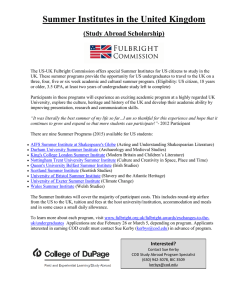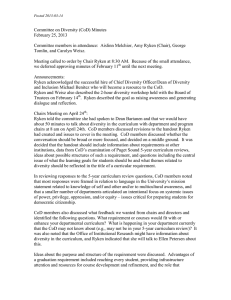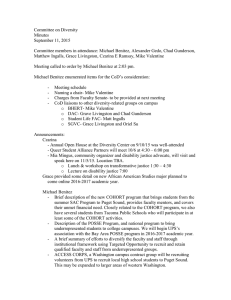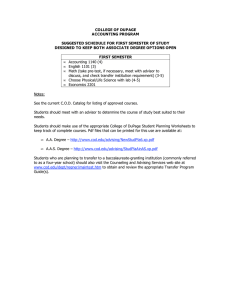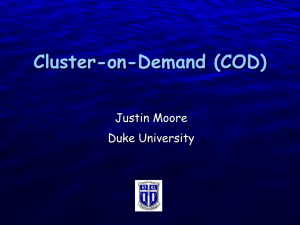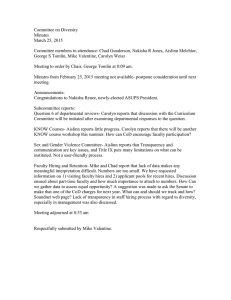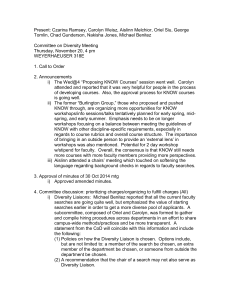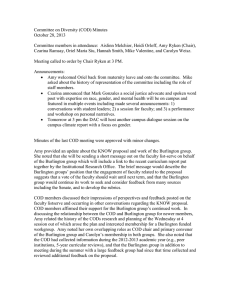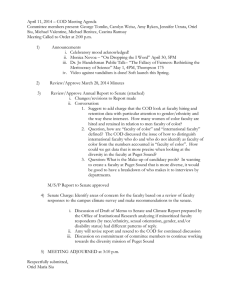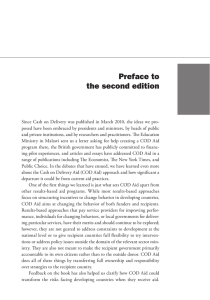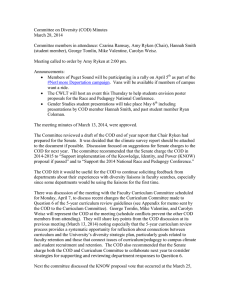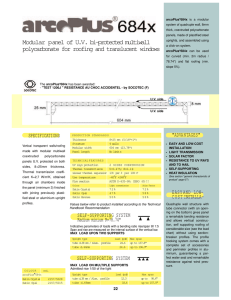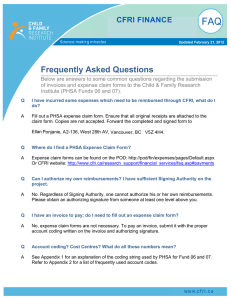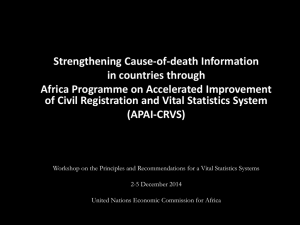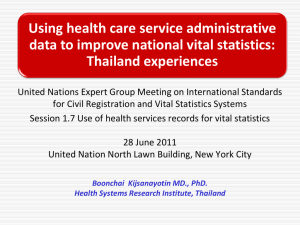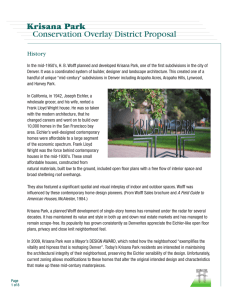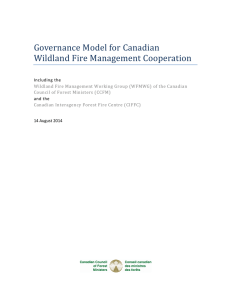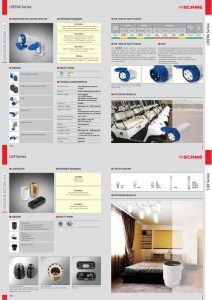Committee on Diversity (CoD) Minutes September, 9, 2013
advertisement
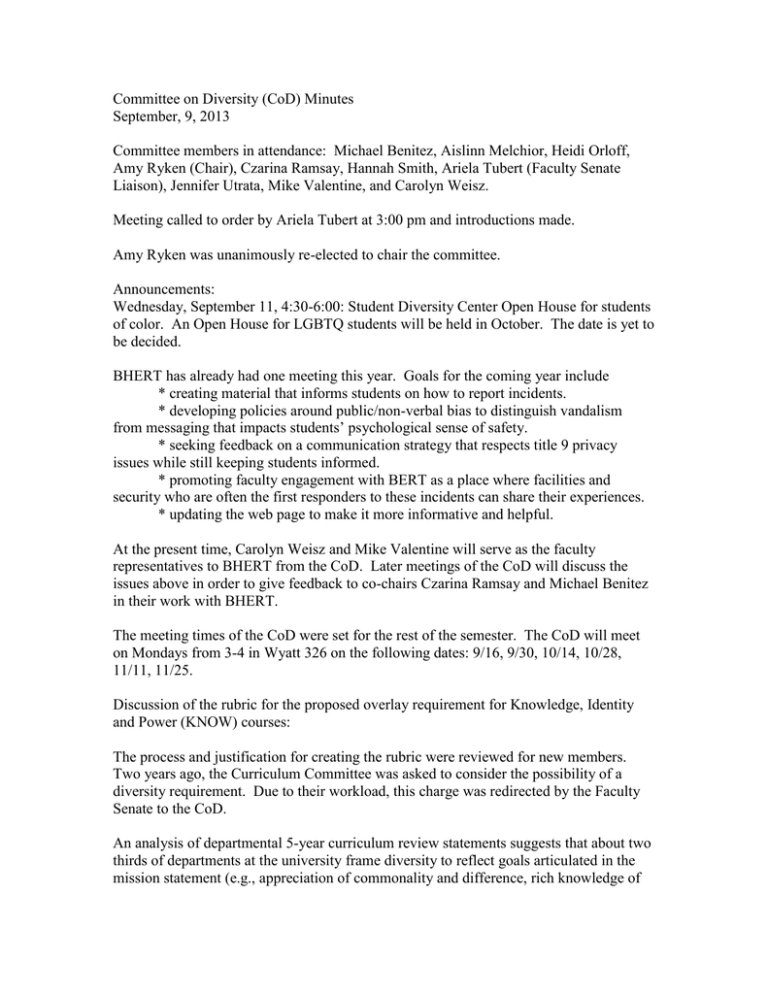
Committee on Diversity (CoD) Minutes September, 9, 2013 Committee members in attendance: Michael Benitez, Aislinn Melchior, Heidi Orloff, Amy Ryken (Chair), Czarina Ramsay, Hannah Smith, Ariela Tubert (Faculty Senate Liaison), Jennifer Utrata, Mike Valentine, and Carolyn Weisz. Meeting called to order by Ariela Tubert at 3:00 pm and introductions made. Amy Ryken was unanimously re-elected to chair the committee. Announcements: Wednesday, September 11, 4:30-6:00: Student Diversity Center Open House for students of color. An Open House for LGBTQ students will be held in October. The date is yet to be decided. BHERT has already had one meeting this year. Goals for the coming year include * creating material that informs students on how to report incidents. * developing policies around public/non-verbal bias to distinguish vandalism from messaging that impacts students’ psychological sense of safety. * seeking feedback on a communication strategy that respects title 9 privacy issues while still keeping students informed. * promoting faculty engagement with BERT as a place where facilities and security who are often the first responders to these incidents can share their experiences. * updating the web page to make it more informative and helpful. At the present time, Carolyn Weisz and Mike Valentine will serve as the faculty representatives to BHERT from the CoD. Later meetings of the CoD will discuss the issues above in order to give feedback to co-chairs Czarina Ramsay and Michael Benitez in their work with BHERT. The meeting times of the CoD were set for the rest of the semester. The CoD will meet on Mondays from 3-4 in Wyatt 326 on the following dates: 9/16, 9/30, 10/14, 10/28, 11/11, 11/25. Discussion of the rubric for the proposed overlay requirement for Knowledge, Identity and Power (KNOW) courses: The process and justification for creating the rubric were reviewed for new members. Two years ago, the Curriculum Committee was asked to consider the possibility of a diversity requirement. Due to their workload, this charge was redirected by the Faculty Senate to the CoD. An analysis of departmental 5-year curriculum review statements suggests that about two thirds of departments at the university frame diversity to reflect goals articulated in the mission statement (e.g., appreciation of commonality and difference, rich knowledge of self and others) and one-third of departments frame diversity to make visible power dynamics (e.g., conflict and stratification, domestic and global dynamics of diversity). In contrast, National Student Engagement Survey (NSSE) data suggests that a quarter of the students surveyed both as freshmen and as seniors replied “seldom or never” when asked whether diversity was often included in class discussions or assignments. NSSE data also suggests that students report feeling “somewhat” prepared to discuss topics involved with diversity. In focus group interviews with seniors conducted by the Office of Institutional Research in Spring 2013, students emphasized that engaging in critical conversations does not happen enough or happens too late. Students who did have these experiences in courses described them as transformational. Feedback on the initial rubric forwarded by the Burlington Northern Working Group elicited a range of feedback, some of it contradictory. 2 overlay courses are felt to be too much by some faculty, while other faculty insist that a single course is insufficient. Faculty also have differing perspectives on “affective learning” depending upon their individual pedagogies and their sense of how student learning occurs. Other concerns shared in the feedback include: *What would a biology class designated as a KNOW class look like? * Would the designation of KNOW courses skew course selection by students as they tried to double-dip to fulfill requirements? * Why the emphasis on the United States? From a practical standpoint, it would be good to get a sense of what classes could easily be taught as or transformed into KNOW classes to determine whether there would be any staffing issues in carrying out either a one or two course overlay. The goal is to continue to gather feedback in order to refine the proposal and to that end, the committee will meet again in a week’s time. Respectfully submitted, Aislinn Melchior
